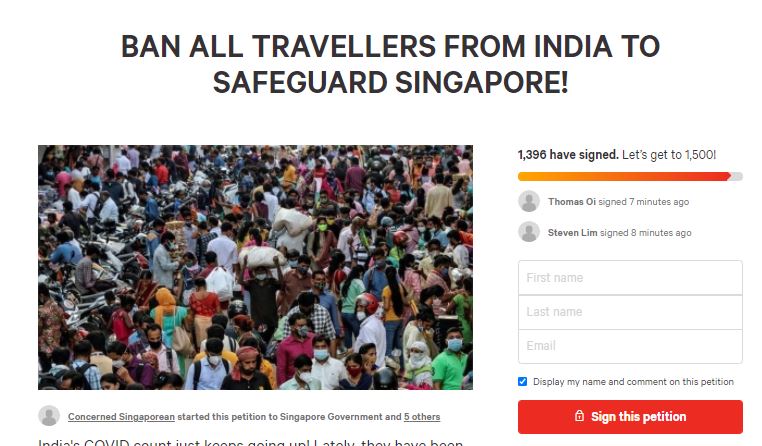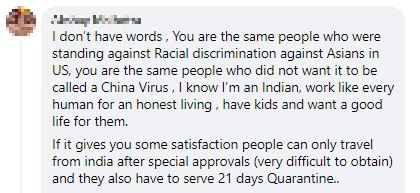Singapore — An online petition was launched on Wednesday (Apr 21) to “ban all travellers from India” to “safeguard” Singapore.

The petition follows the emergence of a recent Covid-19 cluster formed by an Indian national who returned to Singapore, and a number of Covid-19 cases arriving from India in recent days.
The Government announced on April 20 tighter border measures for travellers from India following the worsening pandemic situation there. It said it was reducing approvals for entry for those who are not Singapore citizens or permanent residents.
From April 23, all travellers arriving from India will have to serve not only a 14-day stay-home notice (SHN) at dedicated SHN facilities but another seven days in quarantine after that at their place of residence.
However, some feel these measures are not enough to prevent the spread of Covid-19 in the local community.
They argue that allowing Indian nationals to enter Singapore raises the risk of another wave of Covid-19 including the transmission of new strains. They note that India is reported to have over 200,000 new cases a day, and the country’s total number of Covid cases, at 15 million, is second only to America’s.
Currently, over 1,500 individuals have signed the petition to close the borders with India.
The petition says: “Netizens have written that ‘It’s high time to ban travelers from those countries with high covid infection from entering Singapore even though they might be essential workers! Other countries like Hong Kong and Taiwan are doing the bans, without stopping these people from entering Singapore.. our people run a high risk of getting infected and worst..our health facilities may soon be over crowded by them and locals deprived of assistance!'”
However, some people oppose such discrimination.

They ask for understanding and would like the locals to know there are good people who want Singaporeans to be safe and well.
Denise Teh is an intern at The Independent SG. /TISG

